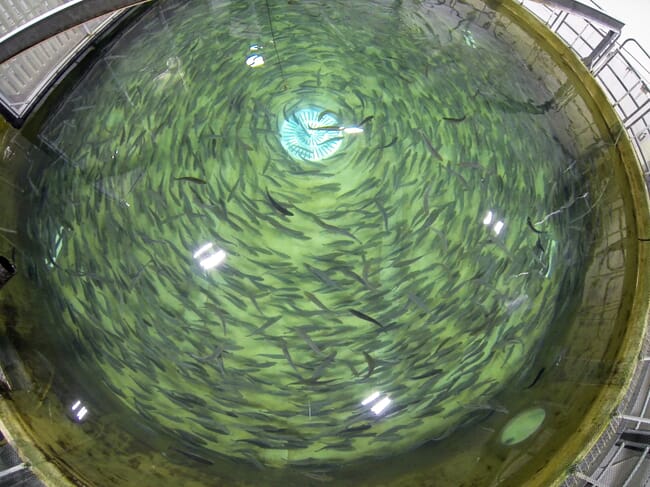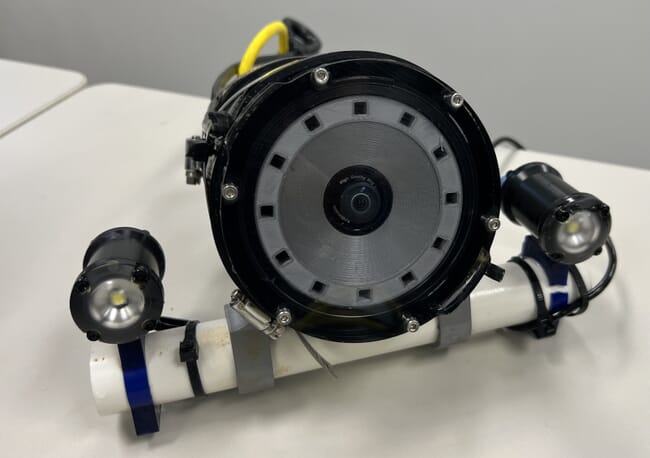
NewTechAqua Award Challenge advances solutions to challenges limiting economic, environmental and social benefits and impacts in aquaculture.
Freshwater Institute’s real-time fish mortality detection system was one of five entries chosen from 47 proposals for the Award Challenge — and it is the only winner from the United States.
NewTechAqua, based in Belgium, aims to demonstrate that investment in sustainable aquaculture research and innovation creates new value chains, markets, growth and jobs in coastal, offshore and landlocked areas. The NewTechAqua Award Challenge advances solutions to challenges limiting economic, environmental and social benefits and impacts in aquaculture. This was the first year Freshwater Institute applied to be considered as part of the Award Challenge. Proposals were evaluated based on factors such as leadership, team management and the potential impact of the technology.
A specialty of the Freshwater Institute, recirculating aquaculture systems allow operators to create ideal water quality and optimal fish health and welfare conditions. However, fish mortality can still occur in such systems due to disruptions such as disease and irregular water quality events.
“That’s why our scientists proposed a mortality monitoring and alert tool to help farm managers make better-informed decisions on mortality management and maintaining good fish health and welfare,” said Dr Brian Vinci, director of the Freshwater Institute.
The system, designated MortCam by the precision aquaculture team that developed it, uses artificial intelligence and internet of things deployed at the edge to provide round-the-clock mortality monitoring and trigger an alarm when mortality thresholds are exceeded.
“MortCam consists of an imaging sensor integrated with an edge computing device customised for underwater applications,” said Freshwater Institute research scientist and precision aquaculture team leader Dr Rakesh Ranjan. “Images acquired are used to train and optimise a machine learning model for resource-constrained edge devices with limited computation capability to detect and count dead fish accumulated near the drain plate. The model is deployed on the MortCam to log the mortality data at a user-defined frequency. The system generates email and text alerts to notify operators of mortality events. In this way, real-time mortality alerts may aid in proactively initiating procedures to prevent potential additional mortalities.”

MortCam uses artificial intelligence and internet of things to provide round-the-clock mortality monitoring and trigger an alarm when mortality thresholds are exceeded.
The development of MortCam is supported by funding from the US Department of Agriculture’s Agricultural Research Service (USDA-ARS). Their most recent initiative into precision aquaculture seeks to increase yields and product quality while improving production efficiencies and enhancing fish welfare, therefore enhancing new economic opportunities aimed at developing aquaculture across the United States and increasing the competitiveness of the nation’s aquaculture industry in the global economy.
USDA-ARS national programme leader for aquaculture Dr Caird Rexroad noted, “applying precision agriculture principles to crop and livestock production has benefitted those farmers and their ecosystems, therefore developing and applying precision aquaculture technologies such as MortCam is a significant advance in our capacity to sustainably produce fish while maintaining high standards of wellbeing.”




